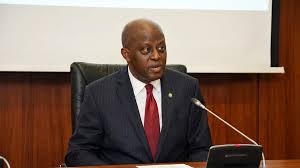AfCFTA: MAN calls for strong commitment to enhanced sectoral competitiveness

The Manufacturers Association of Nigeria (MAN) has called on the Federal Government to ensure that key technical concerns should be addressed with a strong commitment on the government’s part to enhance competitiveness ahead of the implementation of the African Continental Free Trade Area (AfCFTA), in July.

According to MAN President, Mansur Ahmed, the crafting of robust national negotiation mandates, the Rules of Origin, phased liberalisation, the developing and less developed countries dichotomy and the schedule of specific tariff items in the basket for Trade in Goods should be given strong consideration.
NASFAT tasks Muslim women on good conduct
Mr Mansur, represented by National Treasurer, MAN, Isaac Ade Agoye, at a training workshop with sectoral leaders held in MAN House, added that while the implementation of the agreement is expected to drive the growth of the real sector, certain protectionist measures need to be deployed.
He added that the private sector must be united and strategically position itself to ensure that other laws that would enhance gainful participation, are enacted.
“There should also be an advocate for the resolution of challenges like trade malpractices, insecurity, xenophobia, poor trade facilitation infrastructure, inability to translate the ease of doing business initiative into a reduction in the cost of doing business.
“Others are porous border, trade corridor impediments and readiness to engage and support the leadership of the National Assembly with necessary information that can facilitate beneficial regional and continental parliamentary engagements.”
The MAN president stressed that there was a need to sensitise the manufacturers about the operating environment, competitiveness, adjustment of costs for beneficial economic trade, which would be mirrored largely by the AfCFTA agreement.
He noted that MAN had engaged in negotiation, policy formulation, and strategic plan on the AfCFTA trade agreement by studying the numerous limitations with the advisory committee at the regional and national levels on the expectation and outcomes of its advocacy roadmap.
While highlighting the effects of the trade agreement, Mansur advised manufacturers to restructure business models to meet local and international global preferences and standards with the global value chain, stressing that trade liberalisation and the ease of doing business will leverage the free market access to increase trade volume.
He argued that the productive capacity of the nation would shrink, and in turn, inflict injuries on investment plans, economy and the manufacturing sector in the country. “AfcfTA has come to stay, we must participate and we must be very conscious.”










